13.4: Tourism and Hospitality Success Stories
- Page ID
- 9379
\( \newcommand{\vecs}[1]{\overset { \scriptstyle \rightharpoonup} {\mathbf{#1}} } \)
\( \newcommand{\vecd}[1]{\overset{-\!-\!\rightharpoonup}{\vphantom{a}\smash {#1}}} \)
\( \newcommand{\id}{\mathrm{id}}\) \( \newcommand{\Span}{\mathrm{span}}\)
( \newcommand{\kernel}{\mathrm{null}\,}\) \( \newcommand{\range}{\mathrm{range}\,}\)
\( \newcommand{\RealPart}{\mathrm{Re}}\) \( \newcommand{\ImaginaryPart}{\mathrm{Im}}\)
\( \newcommand{\Argument}{\mathrm{Arg}}\) \( \newcommand{\norm}[1]{\| #1 \|}\)
\( \newcommand{\inner}[2]{\langle #1, #2 \rangle}\)
\( \newcommand{\Span}{\mathrm{span}}\)
\( \newcommand{\id}{\mathrm{id}}\)
\( \newcommand{\Span}{\mathrm{span}}\)
\( \newcommand{\kernel}{\mathrm{null}\,}\)
\( \newcommand{\range}{\mathrm{range}\,}\)
\( \newcommand{\RealPart}{\mathrm{Re}}\)
\( \newcommand{\ImaginaryPart}{\mathrm{Im}}\)
\( \newcommand{\Argument}{\mathrm{Arg}}\)
\( \newcommand{\norm}[1]{\| #1 \|}\)
\( \newcommand{\inner}[2]{\langle #1, #2 \rangle}\)
\( \newcommand{\Span}{\mathrm{span}}\) \( \newcommand{\AA}{\unicode[.8,0]{x212B}}\)
\( \newcommand{\vectorA}[1]{\vec{#1}} % arrow\)
\( \newcommand{\vectorAt}[1]{\vec{\text{#1}}} % arrow\)
\( \newcommand{\vectorB}[1]{\overset { \scriptstyle \rightharpoonup} {\mathbf{#1}} } \)
\( \newcommand{\vectorC}[1]{\textbf{#1}} \)
\( \newcommand{\vectorD}[1]{\overrightarrow{#1}} \)
\( \newcommand{\vectorDt}[1]{\overrightarrow{\text{#1}}} \)
\( \newcommand{\vectE}[1]{\overset{-\!-\!\rightharpoonup}{\vphantom{a}\smash{\mathbf {#1}}}} \)
\( \newcommand{\vecs}[1]{\overset { \scriptstyle \rightharpoonup} {\mathbf{#1}} } \)
\( \newcommand{\vecd}[1]{\overset{-\!-\!\rightharpoonup}{\vphantom{a}\smash {#1}}} \)
\(\newcommand{\avec}{\mathbf a}\) \(\newcommand{\bvec}{\mathbf b}\) \(\newcommand{\cvec}{\mathbf c}\) \(\newcommand{\dvec}{\mathbf d}\) \(\newcommand{\dtil}{\widetilde{\mathbf d}}\) \(\newcommand{\evec}{\mathbf e}\) \(\newcommand{\fvec}{\mathbf f}\) \(\newcommand{\nvec}{\mathbf n}\) \(\newcommand{\pvec}{\mathbf p}\) \(\newcommand{\qvec}{\mathbf q}\) \(\newcommand{\svec}{\mathbf s}\) \(\newcommand{\tvec}{\mathbf t}\) \(\newcommand{\uvec}{\mathbf u}\) \(\newcommand{\vvec}{\mathbf v}\) \(\newcommand{\wvec}{\mathbf w}\) \(\newcommand{\xvec}{\mathbf x}\) \(\newcommand{\yvec}{\mathbf y}\) \(\newcommand{\zvec}{\mathbf z}\) \(\newcommand{\rvec}{\mathbf r}\) \(\newcommand{\mvec}{\mathbf m}\) \(\newcommand{\zerovec}{\mathbf 0}\) \(\newcommand{\onevec}{\mathbf 1}\) \(\newcommand{\real}{\mathbb R}\) \(\newcommand{\twovec}[2]{\left[\begin{array}{r}#1 \\ #2 \end{array}\right]}\) \(\newcommand{\ctwovec}[2]{\left[\begin{array}{c}#1 \\ #2 \end{array}\right]}\) \(\newcommand{\threevec}[3]{\left[\begin{array}{r}#1 \\ #2 \\ #3 \end{array}\right]}\) \(\newcommand{\cthreevec}[3]{\left[\begin{array}{c}#1 \\ #2 \\ #3 \end{array}\right]}\) \(\newcommand{\fourvec}[4]{\left[\begin{array}{r}#1 \\ #2 \\ #3 \\ #4 \end{array}\right]}\) \(\newcommand{\cfourvec}[4]{\left[\begin{array}{c}#1 \\ #2 \\ #3 \\ #4 \end{array}\right]}\) \(\newcommand{\fivevec}[5]{\left[\begin{array}{r}#1 \\ #2 \\ #3 \\ #4 \\ #5 \\ \end{array}\right]}\) \(\newcommand{\cfivevec}[5]{\left[\begin{array}{c}#1 \\ #2 \\ #3 \\ #4 \\ #5 \\ \end{array}\right]}\) \(\newcommand{\mattwo}[4]{\left[\begin{array}{rr}#1 \amp #2 \\ #3 \amp #4 \\ \end{array}\right]}\) \(\newcommand{\laspan}[1]{\text{Span}\{#1\}}\) \(\newcommand{\bcal}{\cal B}\) \(\newcommand{\ccal}{\cal C}\) \(\newcommand{\scal}{\cal S}\) \(\newcommand{\wcal}{\cal W}\) \(\newcommand{\ecal}{\cal E}\) \(\newcommand{\coords}[2]{\left\{#1\right\}_{#2}}\) \(\newcommand{\gray}[1]{\color{gray}{#1}}\) \(\newcommand{\lgray}[1]{\color{lightgray}{#1}}\) \(\newcommand{\rank}{\operatorname{rank}}\) \(\newcommand{\row}{\text{Row}}\) \(\newcommand{\col}{\text{Col}}\) \(\renewcommand{\row}{\text{Row}}\) \(\newcommand{\nul}{\text{Nul}}\) \(\newcommand{\var}{\text{Var}}\) \(\newcommand{\corr}{\text{corr}}\) \(\newcommand{\len}[1]{\left|#1\right|}\) \(\newcommand{\bbar}{\overline{\bvec}}\) \(\newcommand{\bhat}{\widehat{\bvec}}\) \(\newcommand{\bperp}{\bvec^\perp}\) \(\newcommand{\xhat}{\widehat{\xvec}}\) \(\newcommand{\vhat}{\widehat{\vvec}}\) \(\newcommand{\uhat}{\widehat{\uvec}}\) \(\newcommand{\what}{\widehat{\wvec}}\) \(\newcommand{\Sighat}{\widehat{\Sigma}}\) \(\newcommand{\lt}{<}\) \(\newcommand{\gt}{>}\) \(\newcommand{\amp}{&}\) \(\definecolor{fillinmathshade}{gray}{0.9}\)Just a few years ago, the professionals highlighted in this section were students in the classroom. Here, they tell us first-hand what you need to know in order to grow in BC’s tourism and hospitality industry. These success stories span the following sectors:
- Accommodation (account manager, rooms division coordinator)
- Recreation and entertainment (project coordinator, conference services manager, entrepreneur and small business owner)
- Travel services (long-range planner, travel designer, industry and communications services manager)
As you read their stories, you’ll see that many of the themes explored in this chapter are echoed in their advice. Please note that these profiles were current as of spring 2015 — some of these grads may already be on to the next big thing in their careers!
Accommodation
Brock Martin, Account Manager

Brock manages accounts for Canada Booking.com Online Reservations Inc. He graduated with a bachelor of hospitality management at Vancouver Community College in 2010. Brock says:
I oversee more than 300 accommodations on Vancouver Island and am their point of contact for day-to-day support and for assisting them in maximizing their listing’s potential with Booking.com. When I moved to Vancouver in 2004, I started my first hotel job at the Westin Bayshore as a banquet server. I still remember my first day; we had to serve a dinner for over 1,200 people, and I remember that despite how crazy it was I knew this was the industry for me!
From there, I moved to the Pacific Palisades Hotel in banquets, and then I was given an opportunity to move to the front desk. I remember thinking at first that I didn’t belong at the front desk as I had always just done food and beverage. I did not think I would fit the position. Well, I was wrong! I immediately knew I loved the interactions with the guests.
I progressed with my career, moving from a front desk agent to an assistant front office manager, where I stayed until the hotel unfortunately closed its doors in 2010. Following the Palisades, I held various front office management positions with Coast Hotels and Delta Hotels in Vancouver, Nanaimo, and Whistler. In 2013, I was presented with an opportunity to join Booking.com as an account manager, where I am presently working.
Taking courses related to hospitality management and tourism will really assist in developing your career. Once in a workplace setting, continued education is key. Look for opportunities for cross training and job shadowing, and ask Human Resources about internal training programs to further your understanding.
Students entering this industry need to have a passion for guest services and for helping people. They need to be able to think quickly and be a good problem solver. This is a fast-paced, ever-evolving industry and doesn’t fit someone who likes routine. No two days are ever the same, and that is what I love! Remain flexible and do not be afraid to try new things. Have an open mind and challenge yourself to think outside of the box.
Specific things students can do to get ahead include networking, further training, and volunteering. Remember, the industry is very large, yet small at the same time. Take opportunities to volunteer as these are great networking opportunities as well. I couldn’t picture myself in any other industry. It is challenging, yet rewarding, and best of all, it is a lot of fun!
Katie Clarke, Marketing Coordinator
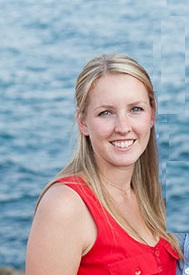
Katie works at the Parkside Hotel & Spa in Victoria, BC. She graduated with a diploma in hospitality management from Vancouver Island University in 2011. Katie says:
My initial hotel job was with the Fairmont Empress housekeeping department during my first co-op work term, a temporary two-month position after which I returned for my second year of schooling. After graduating from Vancouver Island University, I completed my last co-op semester by working at the Queen Victoria Hotel and Suites as a guest services agent. My employment continued there after my co-op term was complete, and lasted until the hotel was sold in October 2012. I left with a wealth of knowledge in guest services.
I began working at the Parkside Hotel & Spa at the time it was purchased by a group of Vancouver Island local investors. I started in reservations, which was a new department in the early stages of development, and my skills and qualifications played a large role in assisting with the department’s foundations. I worked as a reservations agent for seven months before I was promoted to the position of rooms division coordinator. In this position, I assisted in supervising the department, as well as taking on some marketing responsibilities such as keeping the hotel website up-to-date, social media, print materials, and much, much more. The role became a jack-of-all-trades position and was a great experience! In fact, I used what I learned in that role to obtain my current position of marketing coordinator.
My advice for students is that any related education will always help get your foot in the door of a hotel. All applicable work experience, skills, and knowledge can also be an advantage. If you are a hard worker, a team player, and willing to help out when other departments need it, you will be successful in any job you do.
Students should understand that the hospitality field can be a career. Some people view a job in the hospitality industry as temporary or seasonal employment, but it can be a career with many exciting opportunities if you stick with it. The great thing about working in a hotel is that there are so many different departments to explore. The options are endless.
Networking can provide an advantage in this industry. If you contact your tourism bureau, it can connect you to organizations to help you further your industry network. Creating great workplace relationships also fosters getting ahead in any industry. Be sure to keep up with new training and volunteering, as that can be a great advantage, and most workplaces encourage it!
Though every job will come with its tough days, push past them as there are so many better days ahead! Work hard and it will pay off!
Recreation and Entertainment
Anna Rowinska, Project Coordinator
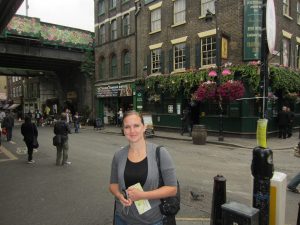
Anna works for MCI Group Canada. She has multiple credentials including a hospitality restaurant management diploma from Douglas College (2005), an Event Marketing Association certificate from BCIT (2008), and a bachelor of tourism management from Capilano University (2013). Anna says:
My love for travel and hospitality were key reasons I took the hospitality restaurant management diploma program at Douglas College. After receiving my diploma, I decided to focus on event marketing and enrolled at BCIT for further training.
Students interested in getting into events and or event marketing need to be able to multi-task, be organized, and have a hard work ethic. Both education and experience are important to work as an event coordinator. You need to know the ins and outs of the industry by working in events, and you also need to understand the back-end strategies of how to implement, organize, and plan events.
The events industry is not your typical nine-to-five job. Long workdays are common, and you can expect to sometimes work 16 or more hours in one day to get the job done. Events can happen any day of the week, at any time. Commitment and the ability to be flexible is key as you are always the first one on scene and the last one to leave. You need to have patience, be organized, and be able to deal with stress.
Many students expect to be hired at at a high level right after graduation, but in truth, most will be entering the workforce in their respective fields in an entry-level position. You’ll need to be prepared to work toward gaining experience with your company before you can move into a supervisor or manager position. My advice is to work hard, learn, and ask questions, and you will succeed.
Volunteering or working part time with events is key as you will not only gain valuable industry experience, you will also be networking with your future peers. Experience is invaluable in our sector, so the more events you work or volunteer in, the more opportunities you will have to expand your network and meet key stakeholders in the event industry.
To be successful, you need to be organized, have excellent communication skills, and be able to handle stress and pressure. Don’t get discouraged if things don’t happen exactly like you planned; life throws you curve balls, and it’s how you deal with those curve balls that allows you to succeed in our industry.
Throughout my career, I have needed to make decisions on what was next for me. You never know which job may lead you to where, so treat each job as a stepping stone to move ahead in your career.
Christine McCann, Senior Conference Services Manager
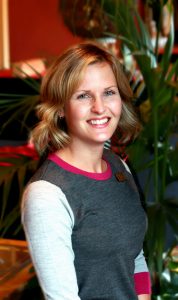
Christine is in senior management at the Fairmont Chateau Whistler. She graduated from the Douglas College program in hotel and restaurant management in 2006. Christine says:
I started at the Fairmont Chateau Whistler as a SWEP (student work experience) student in the banquet department. From there, I became very interested in the organization and execution of events, weddings, and conferences. During my time as a banquet server, I was able to cross train with conference services, allowing me to gain insights into the skills and knowledge required to be a successful member of the that team. When a position opened up for a conference services coordinator, I was overjoyed to receive a role as part of this fantastic team! Seven years have passed, and I am now in the position of senior conference services manager, taking care of many large groups throughout the year.
Event and conference planning is a very interesting blend of roles: being on the floor with clients and groups but also completing many administrative tasks and paperwork to ensure plans are effectively communicated. A positive attitude, passion for creating outstanding events, and an eye for detail are three key qualities needed. Members of my team have moved here from many other departments, including banquets, front office, sales, and food and beverage; however, having a base of operations experience is the normal pathway to a position in conference services.
Being successful in a conference services role takes passion and an understanding and appreciation for the guest experience. We are ambassadors for our brand to our guests — 100 to 1,000 guests at a time — and it is important that we ensure each one feels a special connection to our venue and location.
A positive attitude, willingness to learn and passion for whatever role you choose will always help you on the road to success.
Volunteering is a fantastic way to try out new roles and meet great contacts. Hands-on experience can be invaluable in the future. Continuing to seek knowledge, through training, education, industry events — whatever method is interesting for you — will also be beneficial.
Love what you do, work hard, and listen!
David Wooldridge, Entrepreneur and Small Business Owner
David is the owner and founder of Ridge Wilderness Adventures Ltd. He graduated from the outdoor recreation management program at Capilano University in 2002. David says:
I love people and I love being outside, so I searched for positions that would fill that need. I have worked at canoe rental companies, guiding outfits, first-aid schools, retail shops, construction, and anything else that I could get my hands on.
I recommend students get into the field by one of two means: enter a specific program like the one at Capilano University, or contact a company that does the work they would like to do and apply. If applying directly doesn’t work, ask the company what it is looking for in a person to be employable.
This work is for those who don’t like to have a fixed routine and who thrive on problem solving and like to do different things all the time. If you prefer a set schedule and set pay, it is probably not for you.
It’s an amazing job where we get to work at what we love. To succeed in this line of work, attitude and availability trump aptitude. If you would like to have a lucrative career in the outdoors, you need to possess an outgoing, friendly, hardworking attitude. This style of work is not nine-to-five; in fact, it’s the opposite of that. Your ability to work when the work is there is key to success. Obviously, you need to have the ability to do the work, but 9 times out of 10, if that’s all you have you will not succeed.
This industry is all about the people that you know. Go to every event and course you can to meet people and get known. Most places will give you the training; you need to do the work if your attitude is right, so sort out what you need before you start.
If you love the outdoors, love people, and want to have fun for work, this is what you should do.
Travel Services
Cleopatra Corbett, Long-Range Planner
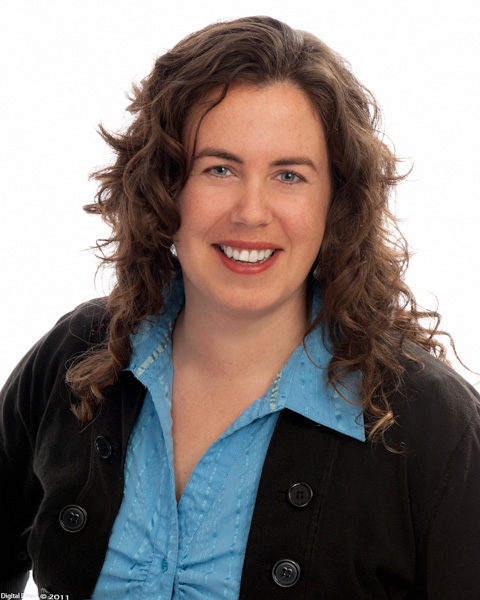
Cleopatra works as a planner for the City of Vernon. She holds a bachelor of tourism management from Vancouver Island University (2004) and completed the urban design certificate at Simon Fraser University in 2012. Cleopatra says:
My first experience in community planning came during my third-year co-op work term as a planning assistant with the District of Ucluelet. I instantly fell in love with the profession: working with local residents, businesses, non-profits, and elected officials to realize a desired future for the community. Upon graduation, I continued to work in Ucluelet, followed by Tofino, Golden, and now Vernon, all in British Columbia.
In my field the desired skill set includes planning, communication, collaboration, facilitation, public speaking, and report writing. For knowledge, you need planning history and theory, community development, environmental stewardship, marketing, and statistical and research methods. As for education, you want to study planning, geography, urban design, tourism, recreation, history, and law.
Community planning is incredibly challenging and rewarding work. Put simply, your work can have a tremendous impact on the environment and the quality of life for residents in your community. You help the community dream about a desired future and then develop policy to make it happen.
My advice would be to have mentors you respect and admire, and to meet with them regularly to ask questions and look for advice. Always do your best, work hard with integrity, be kind, tell the truth, and do what you love.
Get experience before graduating through volunteer work, internships, and/or co-op work terms. Also, try to apply course projects in university to real-world projects for businesses, non-profits, or governments in order to gain meaningful applied experience. Interview people who are in positions that interest you; ask questions and don’t be afraid to ask for help.
If you are willing to move, you can get any type of job you desire. Being mobile enhances your opportunities. Practise life-long learning and strive for a healthy work-life balance. Follow your bliss and make the world a better place.
Marie-Catherine Lapointe, Travel Designer Team Lead
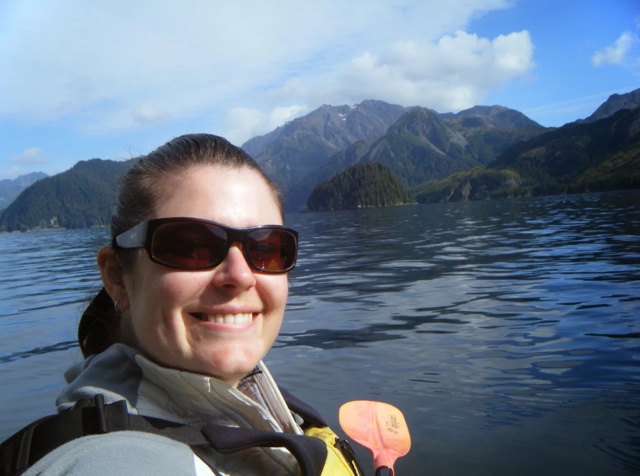
Marie-Catherine is a travel designer with Discover Holidays Inc. She graduated from Capilano University with a diploma of tourism management in 2012. Marie-Catherine says:
When I graduated, I knew that I wanted to work in travel services as a central part of the industry with touch points in every other sector, so when a posting to be a travel designer for a receptive tour operator came up, I jumped at the chance. I was excited to be working to bring clients from all over the world to Canada, and I took in every opportunity to learn about the many aspects of the company, including product, marketing, and sales.
Students wanting to get into the tour operator sector need to have a tourism education to really understand the intricacies of the sectors in the industry, as well as skills in customer service, sales, cultural practices (particularly dealing with international clients), marketing, and a real passion for the products they are selling. Teamwork is crucial on our small team, as is being intrinsically motivated to provide the best experience for clients.
First, receptive tour operators are not travel agents, nor do they operate the tours. We work with travel agents, wholesale agents, and occasionally with clients directly. However, it is mainly a B2B model. Receptive tour operators are in a dynamic workplace, with opportunities to learn and gain experience in other sectors and fields, as well as hone customer service and sales skills.
My advice is to really take hold of every opportunity that is presented, and to never stop learning about the industry. This is a very social industry and building a large solid network can help with future opportunities. Build up your customer service experience, whether it’s through front-line jobs or volunteering, and attend networking events. Schools often host or sponsor these, and students should be attending them all.
This is a really fun industry, and with so many sectors and positions available, I really believe that there is something for everyone in tourism.
Jody Young, Industry and Community Services Manager
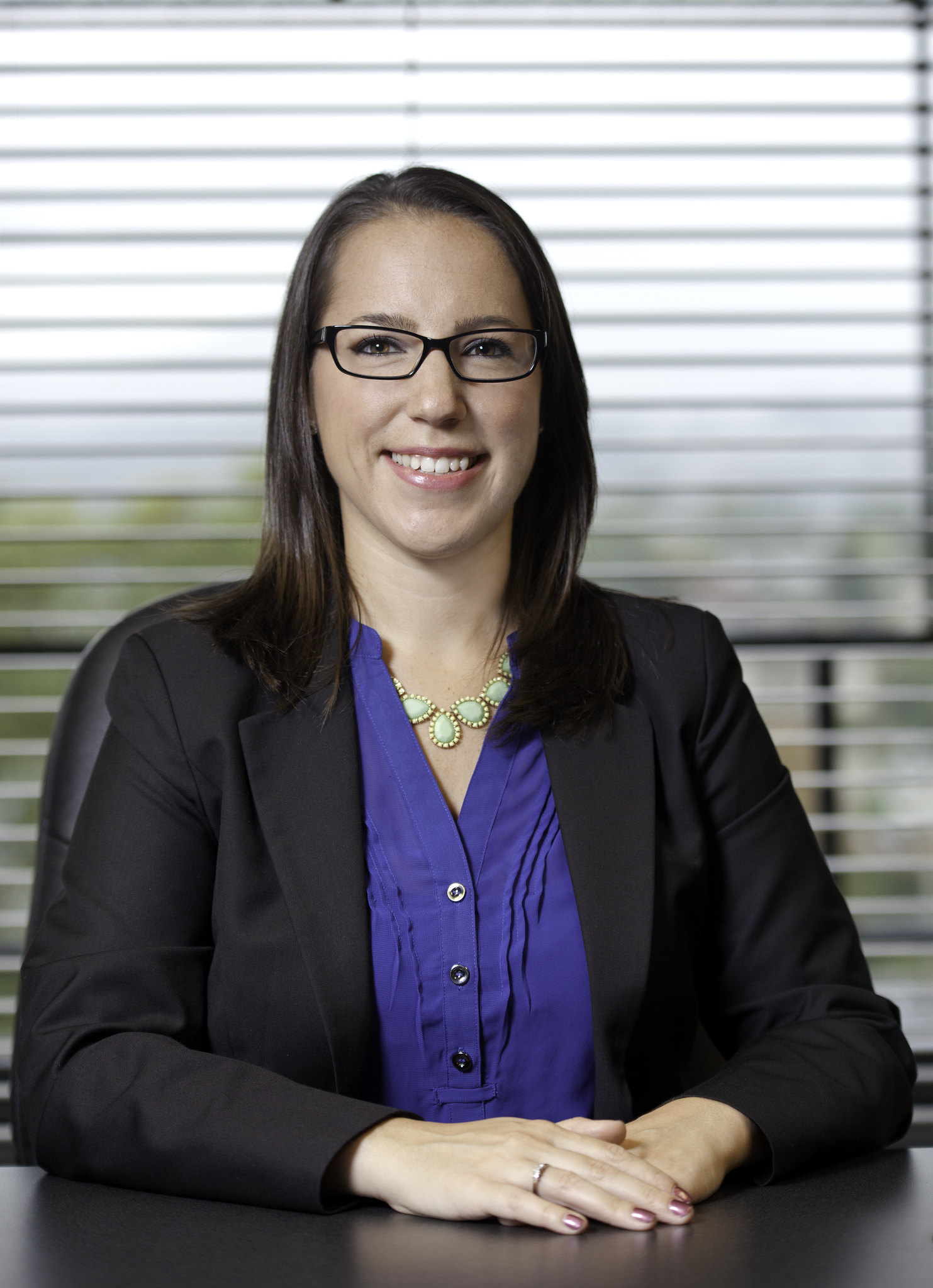
Jody works for Tourism Vancouver Island. She holds a bachelor of tourism management from Vancouver Island University (2008). Jody says:
After graduation, it took a year and a half before I got my big break into the industry. I’m thankful for the time it took for my career to really start as it provided me the opportunity to travel around Southeast Asia. I started at Tourism Vancouver Island in an entry-level position as the distribution coordinator. After just one year in the role I was promoted to industry services coordinator where I was coordinating the association’s annual conference and AGM and conducting accommodation inspections. After another year and a half, I was promoted again to management level within the organization to the role I am currently in. As industry and community services manager, I oversee many portfolios for the organization such as community tourism development, event management, research, and promotion of the value of tourism.
The tourism management degree program at Vancouver Island University definitely set me up for success in this role. I highly recommend completing the four-year degree and getting as much hands-on, real-world experience that you can while completing your education. Employers will be looking for proven successes and workplace skills, not just completion of courses.
Although the tourism industry is vast with many desirable, well-paying career opportunities, it is still fairly new. The industry has room to grow on communicating that it is a key economic and social contributor to our province and country.
I would advise students to jump at an entry-level opportunity as it will be your door to advancing in your career in a particular organization. Once you’ve got your foot in the door, demonstrate your ability and you will soon find bigger opportunities presented to you. If I didn’t take the entry-level opportunity that was presented to me, I wouldn’t be in the role I am in today.
Students can get ahead by taking advantage of student rates at industry events. By attending these industry events you will rub shoulders with the folks who are at the top of the game in this industry and meeting potential future employers. Look for opportunities for mentorship programs or internships to gain that workplace experience as well.


